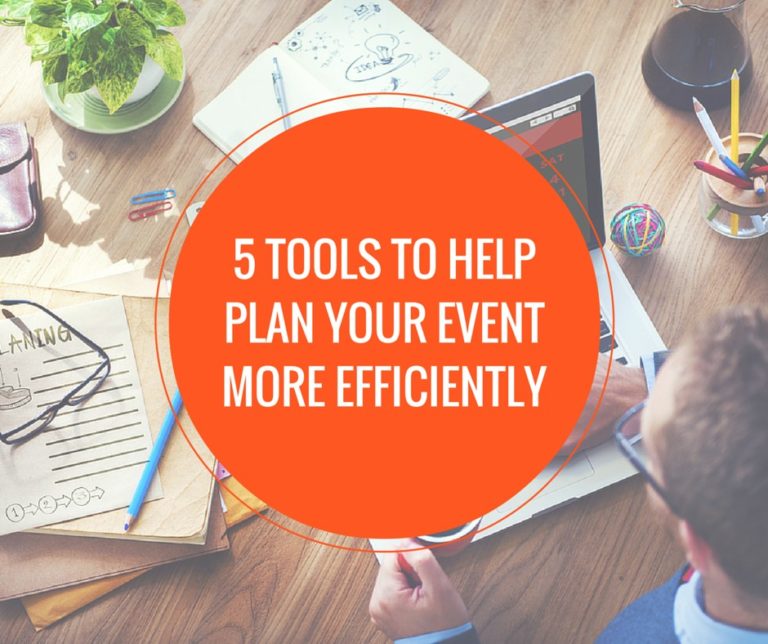Event planners often have multiple goals when organizing festivals, performances, races, and other occasions. First and foremost, you want your attendees to enjoy your event and go home satisfied with their experience. But you likely have secondary aims, like introducing new customers to your brand and developing close relationships with corporate sponsors.
How can you ensure that your event meets your goals and has a high return on investment (ROI)? It can be challenging to coordinate an event that checks every box and even more difficult to measure your successes. But this process doesn’t have to be stressful. With the right event management strategies and tools, you can plan an excellent function with a high ROI and set yourself up for future success.
Event ROI (Return on Investment) Overview
What does event return on investment (ROI) mean? This marketing term refers to the overall value you gain from hosting your event. In other words, ROI helps you determine if the countless hours, labor, and money you invested into your function have generated a meaningful profit.
Are you wondering how to calculate event ROI? You can use a simple formula to measure the financial returns of your event. First, total the event profits that you earned from merchandise sales, tickets, and other income streams. Subtract the event costs from your earnings. Next, divide this figure by the event costs and multiply the result by 100. The resulting figure is your ROI.
For instance, if your event earns $50,000 in profits and you spent $20,000 to organize it, your ROI formula would look like this: [50,000-20,000] Ă· 20,000 x 100 = 150. That means your event had a stellar 150% ROI.
Your event ROI analysis can also include less tangible measures, like attendee satisfaction, brand awareness, and the number of new leads for customers and sponsors.
How To Get the Best ROI Results At Future Events
Are you ready to take your event management to the next level and see significant investment returns? Here are eight simple ways to obtain the best ROI results at future events.
1. Set Attainable Goals and Measurable Objectives
First, you’ll want to determine your main event goals. It’s great to dream big, but you should make sure that your objectives are achievable and realistic. Otherwise, you may get discouraged if your event fails to live up to your ambitious expectations.
For instance, you may perform market research and determine that similar events in your region sell an average of 1,000 tickets. Based on this information, you may conclude that attracting 10,000 attendees to your event is not an attainable goal.
It’s also helpful to develop measurable goals that you can use to gather event ROI metrics. Examples of quantifiable objectives include:
- Achieving a high level of attendee satisfaction
- Attracting a certain number of attendees
- Earning revenue through merchandise sales
- Fundraising a specific amount of donations
- Increasing social media engagement
- Partnering with long-term corporate sponsors
Once you’ve formulated attainable and measurable event goals, you can develop a plan to meet these objectives.
2. Identify Important Metrics and Methods for Measuring Them
Gathering data during and after your event can help you measure your ROI. First, you should identify significant measures related to your goals. These event ROI metrics can include:
- Attendee feedback
- Audience demographics, such as age, gender, and income level
- Content marketing metrics like page views and site traffic
- Merchandise sales
- Number of attendees
- Social media engagement, like post comments and likes
- Registration rates
- Ticket sales
The tools you use to gather this data will depend on the analytics you want to perform and the type of event you’re hosting. For example, you can distribute cardstock feedback forms during physical events, while online surveys and live polls can quickly gather valuable data during virtual events.
3. Use the Right Event Technology
An appropriate event management software can help you increase your ROI. This technology streamlines the event planning process by enabling you to use one central platform to organize every aspect of your event.
For example, you can use event management software to gather analytics about your event’s marketing, revenue, social media engagement, and other metrics. This data can help you evaluate your event marketing ROI and your audience’s satisfaction levels.
You can also use an event management solution for essential tasks like:
- Budgeting
- Coordinating event staff
- Creating an event page
- Managing hybrid physical and virtual events
- Marketing your event
- Registering attendees online
4. Analyze Previous Data and Work With Those Figures
Data from previous events can be an excellent resource for growing ROI. It’s essential to keep thorough records for each function that you host in order to learn from past mistakes and improve your next event.
Based on this data, you can keep using strategies that worked well for you in the past. For example, if most of your attendees purchased tickets after viewing your social media posts, you should continue to dedicate attention to these platforms. And if one sponsor helped you create a popular VIP experience, you can reach out to them for another collaboration.
You may also decide to try new tactics, such as:
- Choosing a more centrally located venue to make your event more accessible for attendees
- Creating more innovative marketing strategies
- Developing new kinds of merchandise
- Seeking new sponsors
- Spending less time on social media channels that don’t generate much engagement
- Targeting a different audience demographic
- Using less expensive vendors
By building on past data and continually finetuning your event planning skills, you can earn higher ROIs.
5. Cut Back on Unnecessary Costs
Reducing the upfront costs of your event can increase your overall ROI. Methods for cutting expenses include:
- Choosing less expensive beverages and foods, like generic water bottles
- Having your sales team work with sponsors to create a VIP experience and sell special tickets at a higher price
- Increasing ticket sales
- Negotiating with event vendors to reduce the costs of decorations and other materials
- Selling branded merchandise
While skimping too much can negatively impact your guests’ experience, buying less expensive supplies and creating new revenue streams can effectively reduce event costs.
6. Expand Your Brand’s Reach
You can also enhance your event ROI by using marketing methods to increase your brand’s reach. These tactics can draw attendees to your event and help them remember your brand for future events and purchases.
Many event planners use social media for marketing their brands and functions. You can increase social media engagement by using these simple strategies:
- Engage with your followers in the comments section
- Give away merchandise before your event to generate excitement
- Identify your target audiences and research the type of content that they produce and respond to
- Select appropriate social media channels based on your potential attendees’ demographics
- Schedule content throughout your event life cycle, including before, during, and after the function
You can also use non-digital tools to expand your brand’s reach. Billboards, flyers, press releases, and other traditional advertising methods can help you connect with new audiences and increase word of mouth about your event.
7. Make Genuine, Lasting Connections
Forming meaningful relationships with event sponsors is one of the most effective ways to boost your ROI. You can partner with corporations and other organizations to attract new customers, create VIP experiences, or offer free or discounted products. These mutually beneficial relationships can increase the reach and visibility of your event and sponsors.
Methods for forming authentic connections with sponsors include:
- Being open to creative ideas from your sponsors about how they can contribute to your event
- Developing social relationships with people who have similar backgrounds and passions
- Offering multiple sponsorship packages so that organizations can choose how much they want to be involved in your event
- Seeking sponsors who share your goals
By investing care and time into your sponsor relationships, you can create lasting partnerships that you can draw on for future events.
8. Measure Attendee Satisfaction With Online Surveys and Live Polls
An excellent event creates a memorable, positive experience for attendees. How can you tell if you’ve satisfied your audience? The answer is simple: ask them with an event survey. This method allows you to assess your attendees’ level of satisfaction and gain valuable feedback that you can use for upcoming events.
You can distribute surveys before, during, or after your function. You can ask questions about your attendees’ satisfaction with any aspect of the event experience, including:
- The atmosphere of the event
- Barriers to participation
- Their expectations for the event
- Interactions with staff
- Most and least enjoyable parts of the event
- Registration process
- Venue
Highly satisfied attendees share their positive experiences with their friends and will be more likely to come back for your next function, increasing the overall ROI of your event.
An Event Management Platform That Gives You Valuable Insight
Event ROI can help you assess the overall success of your event marketing efforts. Functions that earn a high ROI enable you to make a profit, develop a loyal customer following, promote your brand, and meet other key goals. Events.com’s innovative event management software can ensure that your next event will generate a satisfactory ROI. Our accessible and affordable platform will help you with every step of your event planning process, from creating a custom landing page to distributing a post-event survey. Get in touch today to learn about how we can boost your event ROI and eliminate your event-planning stress.







